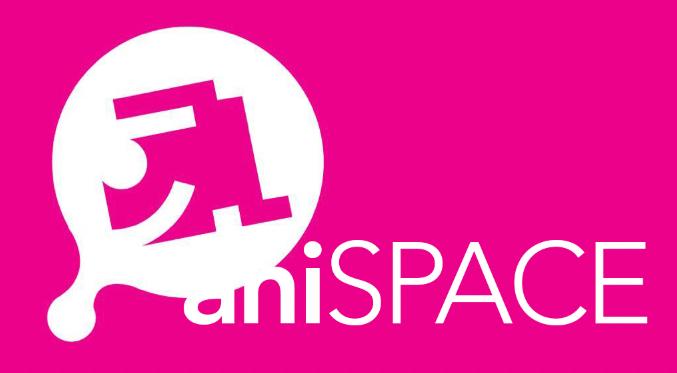Yam Pak Charitable Foundation
SCHOOL OF COMPUTING & INFORMATION SCIENCES
任白慈善基金電子計算及信息科學院
Bachelor of Crime and Security Science
Future-proof jobs with IT and AI skills

Bachelor of Crime and Security Science
| Programme (taught in English and Chinese) |
4-year full-time or 6-year part-time higher diploma programme
to integrate the fields of criminology, criminal justice, data science and information technology. |
| Career in |
law-enforcement using ICT/AI, correctional service and NGOs,
finance sector to enhance compliance and regulations, teaching and research in crime and security science. |
| Local admission: Year 1 entry |
Minimum 3322A (English, Chinese, Citizenship and Social Development and 2 other subjects)
in the Hong Kong Diploma of Secondary Education Examination (HKDSEE);
(or an equivalent qualification)
more |
| Local student finance |
Apply directly through
online application.
more |
| International student |
Non-Chinese speaking international student may have Chinese
courses substituted by other courses. more,hostels |

Why at SFU?
with Catholic values
is taught by caring staff with diverse
expertise and passion,
with 2 IEEE Fellows,
PhD from:
Imperial College London, Maryland, HKU, CUHK, TsingHua, Waterloo,
Criminology and security experts,
IT industry experience in
ATT Bell Labs, Huawei USA, IETF standards, 5G Wireless.

Program Objectives
- Foster a solid foundation in crime and security science:
The programme aims to provide students with a comprehensive understanding
of the theories and principles of criminology, criminal justice and security science.
Students will develop a critical perspective on crime causation, criminal behaviour,
and the functioning of the criminal justice system, enabling them to assess,
analyse and solve crime-related issues;
- Emphasise the role of information technology in crime prevention and security:
The programme nurtures students the application of information technology
in addressing crime and security challenges.
Students will acquire knowledge and practical skills in areas such as cybersecurity,
data analytics, and knowledge in information technology,
enabling them to utilise information and communication technology effectively in crime prevention,
security risk management, and criminal investigations;
- Cultivate analytical and problem-solving skills:
The programme aims to enhance students’ analytical and problem-solving abilities
to tackle complex crime-related issues.
Through courses related to data analytics, AI in crime issues,
integration of information technology and crime, and security risk management,
students will develop the skills in development of intelligent systems by analysing large datasets,
identifying patterns, and make informed decisions to mitigate security risks and combat cyber threats;
- Promote ethical and professional practices and teamwork:
The programme aims to nurture students to evaluate and apply ethical considerations
and professional conduct in the field of crime and security.
Students will explore ethical dilemmas, legal frameworks,
and professional codes of conduct relevant to their roles in law enforcement,
cybersecurity, and criminal justice.
They will develop an understanding of the ethical responsibilities
associated with the use of information technology in crime prevention and security management
and will work with multidisciplinary teams in developing effective solutions; and
- Provide practical experience and industry readiness:
The programme offers students the opportunities for practical experience
through work placements and project-based work,
allowing students to apply their knowledge and skills in real-world settings.
Additionally, the programme with courses in professional practice and ethics,
prison and offender rehabilitation, policing practices prepare students for the demands of the industry,
ensuring they are well-equipped to navigate the complexities of the crime and security landscape.

Special Features of the Programme
Focus on crime and security science, not just criminology and cybersecurity;
Is an applied science programme;
Is designed as a Vocational and Professional Education and Training (VPET) programme as distinguished from the Criminology programmes in other institutes;
Have very strong industrial connections;
Is run by AI specialists, data scientists, criminologists, lawyers and experienced law enforcement practitioners; and
Not only train students to work in the law enforcement departments, but also in the financial sector and NGOs specializing in offender rehabilitation.

Program Learning Outcomes
Upon successful completion of the Program, students should be
able to:
- Command a comprehensive and sound foundation in crime and security science theories,
criminal behaviour, the criminal justice system,
and knowledge in information and communication technologies
in problem solving and logical thinking
- Apply information and communication technology concepts and tools,
and utilising data analytics tools to analyse
and investigate various forms of crime in crime patterns, crime prevention,
security management, and criminal justice processes
- Integrate crime and security sciences, and information and communication technologies
in designing crime-related intelligence systems
for different applications in crime and security management
- Evaluate and apply ethical and legal considerations, critical thinking
and problem-solving skills to address complex crime-related issues and propose effective solutions;
- Communicate effectively, both orally and in writing,
to convey complex crime and security concepts to diverse audiences;
- Work collaboratively in multidisciplinary teams to develop strategies and solutions
that integrate crime science principles and information and communication technology;
- Demonstrate professional responsibility, ethical decision-making and effective communication
in the context of crime and security, upholding legal and professional standards; and
- Apply practical skills, analytical thinking and industry knowledge
through work placements and project-based work
in showcasing competence in real-world crime and security scenarios.

Career Prospects
The BCSS programme support the career development of the following four major groups of professionals:
- law-enforcers who prevent and detect crimes, e.g. the Police and Customs and Excise.
- those who supervise or reform prisoners/ex-prisoners, e.g. the Correctional Service Department and NGOs.
- those who work in enhancing compliance with financial regulations, e.g. the bank sector.
- those who want to pursue a teaching and research career in crime and security science.

Local students
Applicants having completed middle school / high school / 12th grade
Admission requirements
Year 1 Entry (Full-time / Part-time)
- Have obtained Level 3 in Chinese Language, Level 3 in English Language, Level 2 in Mathematics,
'Attained' in Citizenship and Social Development, and Level 2 in Electives
in the Hong Kong Diploma of Secondary Education (HKDSE) Examination; OR
- Have obtained an equivalent qualification; OR
- Mature applicant of at least 21 years of age on 1st September of the year
when admission is sought with three years of relevant working experience
in Disciplinary Departments or ICT-related industry*.
*Remarks:
- Applicants need to pass the admission interview.
- The applicants must submit by the following documents:
(i) personal statement;
(ii) employer's recommendation; and
(iii) previous/current employment certificate/letter
to prove the applicant’s work experience
containing job roles/positions, duties and responsibilities,
skills and experience gained, and other related information.
- Satisfy the English language requirements below:
- Level 2 in English Language of HKDSE; OR
- Grade E or above in Use of English of HKALE; OR
- An overall score of 5 in IELTS
(The validity period of language proficiency test results
is two years from the date of the examination.); OR
; OR
- A score of 45 or above
(Internet-based test/ Internet-based test Home Edition) in TOEFL
(The validity period of language proficiency test results
is two years from the date of the examination.); OR
- Have successfully completed an AD/ HD programme
which is recognized by local institution or an overseas institution
where the medium of instruction was English; OR
- A score of 100 or above (out of 150 full scores)
in English of National College Entrance Examination (NCEE)
Year 2 Entry (Full-time)
- Have successfully completed an Associate Degree (AD)
or a Higher Diploma (HD) programme
that is pitched at Level 4 of the Hong Kong Qualifications Framework; OR
- Have obtained an equivalent qualification.
Year 3 Entry (Full-time)
- Have successfully completed an Associate Degree (AD)
/ Higher Diploma (HD) programme in relevant discipline
pitched at Level 4 of the Hong Kong Qualification Framework; OR
- Have obtained an equivalent qualification; OR
- Mature applicant of at least 23 years of age on 1st September of the year
when admission is sought
with five years of relevant working experience in Disciplinary Departments
or ICT-related industry,
and having completed some postsecondary studies in Crime Science,
Criminology, Policing, or ICT-related areas**.
**Remarks:
- Applicants need to pass the admission interview and written admission test.
- The applicants must submit by the following documents:
(i) personal statement;
(ii) employer's recommendation; and
(iii) previous/current employment certificate/letter
to prove the applicant’s work experience
containing job roles/positions, duties and responsibilities,
skills and experience gained, and other related information.
Year 3 Entry (Part-time)
- Have successfully completed an Associate Degree (AD) or a Higher Diploma (HD) programme
that is pitched at Level 4 of the Hong Kong Qualifications Framework; OR
- Have completed a HKQF Level 4 programme that is approved by the University; OR
- Have obtained an equivalent qualification.
Year 4 Entry (Part-time)
- Have successfully completed an Associate Degree (AD) / Higher Diploma (HD) programme
in relevant discipline pitched at Level 4
of the Hong Kong Qualification Framework; OR
- Have completed a HKQF Level 4 programme that is approved by the University; OR
- Have obtained an equivalent qualification; or
- Mature applicant of at least 23 years of age on 1st September of the year
when admission is sought
with five years of relevant working experience
in Disciplinary Departments or ICT-related industry,
and having completed some postsecondary studies
in Crime Science, Criminology, Policing, or ICT-related areas***.
***Remarks:
- Applicants need to pass the admission interview and written admission test.
- The applicants must submit by the following documents:
(i) personal statement;
(ii) employer's recommendation; and
(iii) previous/current employment certificate/letter
to prove the applicant’s work experience
containing job roles/positions, duties and responsibilities,
skills and experience gained, and other related information.

Apply for Admission (local students)
Direct Application for Year 1 Entry
To seek admission to the Program, applicants should apply via
online application.

Interview Arrangements
Shortlisted local applicants will be invited to attend an
admission interview. Applicants are requested to bring the
following when attending the interview:
- original and photocopy of Hong Kong Identity Card or
Passport;
- originals and photocopies of relevant academic credentials;
- originals and photocopies of school reports for the last
three years; and
- certificates and results of HKDSEE/HKALE/HKCE.

Tuition Fee
Local Student
The annual tuition fee for the 2025/26 intake of the 4-year
BCSS programme is HK$85,230 per year.
The tuition fee in 2025/26, after the deduction of the $35,120 Government subsidy (if approved)
under NMTSS
which is applicable for full-time local students only, is
$50,110 per year.
PNS scholarship (additionally) of HK$10,000 per year may also be granted.
Part-time local Student
The annual tuition fee for the 2025/26 intake of the 6-year part-time
BCSS programme is HK$59,610 per year.

Apply for admission (International
students)
International students may apply: All courses in BCSS are taught
in English, where Chinese language courses may be replaced by
other courses for non-English speaking students.
Admission requirements for
international students
The equivalent qualification to meet the admission requirements for local
studentsis generally the successful completion of high
school education in a 12-grade school system. It will include
basic STEM courses and sufficient preparation in English
proficiency to enable study in this degree program with lectures
taught in English. Performance based on school transcript will be
evaluated individually. Non-English speaking international
students may be exempted from Chinese language study.

Non-local student tuition fee
The annual non-local student tuition fee for the 2025/26 intake
of the 2-year BCSS (or BCSS) programme is HK$96,310. (Exchange
rate: HK$7.8 = US$1)


Enquiries
School of Computing and Information Sciences:
Office Telephone: (852) 3702 4211
WhatsApp: (852) 5269 3846
Email: cis-info@sfu.edu.hk
WeChat ID: wxid_ohv675ayadso52
Public Affairs Office:
Office Telephone: (852) 3702 4388
Email: pao@sfu.edu.hk
Campus Address:
2 Chui Ling Lane, Tseung Kwan O, N.T. (Exit B, Tiu Keng Leng MTR Station)

Curriculum
Year 1
Program Core course - Interdisciplinary Crime Science
- Introduction to Crime Science (3)
- Introduction to Criminal Justice System (3)
- Management Principle and Practices in Law Enforcement Agencies (3)
Program Core course - Maths
- Mathematics I (3)
- Statistics and Data Analysis with Crime Events (3)
Program Core course - IT
- Introduction to Programming (3)
- Introduction to Computing Systems and Networks (3)
Program Core course - Applied Science
Language and Communication course
- Business Communication (3)
General Education Course
- Integrated Seminar and Community Involvement (0)
Year 2
Program Core course - Interdisciplinary Crime Science
- Financial Mediation (3)
- Crime Prevention and Security Management (3)
- Crisis Management and Negotiation (3)
- Psychology and Crime (3)
Program Core course - Maths
Program Core course - IT
- Introduction to Cybersecurity (3)
- Data Science for Crime Prevention and Detection (3)
- Web Development and Security (3)
Language and Communication course
- Chinese Business Writing (3)
General Education Course
- Ethics and Moral Issues (3)
Year 3
Program Core course - Interdisciplinary Crime Science
- Criminal Law and Security (3)
- Prison and Offender Rehabilitation (3)
- Financial Crime and Compliance (3)
- Asia-Pacific Criminal Justice System (3)
- National Security Law Amidst Geopolitics (3)
Program Core course - IT
- Cryptography and Cybersecurity (3)
- Digital Forensic (3)
- Big Data Analytics and Collation in Crime Analysis (3)
Program Elective course - at least one ICT Elective course
- Programme Elective I (3)
- Programme Elective II (3)
General Education Course
- General Education Elective (3)
Year 4
Program Core course - Interdisciplinary Crime Science
- Criminal Investigation and Intelligence (3)
Program Core course - Applied Science
- Work Placement II (3)
- Project (3)
Program Core course - IT
- IT Professional Practice and Ethics (3)
Program Elective course - at least one ICT Elective course
- Programme Elective III (3)
- Programme Elective IV (3)
General Education Course
Elective Courses for Years 3 and Year 4
ICT Elective Courses
- Introduction to Artificial Intelligence (3)
- Virtual Reality and Metaverse for Crime Scene Analysis (3)
- AI in Crime Prevention and Detection (3)
- Machine Learning for Robotics: RoboCop, Firefighting Drones, and UAVs (3)
- Crypto Compliance and Blockchain in Financial Criminology (3)
- The Role of Technology in Human and Arms Trafficking (3)
- Smart Technology in Prison Management and Customs Security (3)
Crime Science Elective Courses
- Organised Crime (3)
- Substance Misuse (3)
- Criminal Profiling (3)
- Policing Practices (3)
Return to index map

Internship
Students are highly encouraged to take the Internship course
to gain industry experiences.
Industry parters are offering Internship to our students
and are also hiring from our graduates.
Partial list of our industry partners are:
Return to index map

Frequently Asked Questions on BCSS
Job market
IT and AI have already revolutionized crime and law-enforcement
so that this study will future proof the jobs in these areas.
Programming crime scientist,
data scientist for crime prevention and detection,
web development for secure and compliant systems.
Admission
If I do not meet the basic admission requirements,
will I still be enable to study this higher diploma programme?
Students could study the Diploma
in Foundation Studies of Higher Education
and be admitted to BCSS programme
when they graduate from the diploma.
Do I have a higher chance of admission in the BCSS programme
if I have studied ICT?
Does ICT have a higher weighting than other electives e.g. Economy?
In the selection process,
the applicant's scores in two elective subjects
in the Hong Kong Diploma of Secondary Education Examination
will be considered as additional scores.
Although prior study in ICT may help,
other factors such as interview,
motivation and interests of the applicant are also considered.
Would some subjects of the BCSS be exempted
if I have studied some related subjects in the Diploma?
We can only exempt subjects that have QF level 4 or above.
Will there be interview after the annoucement of JUPAS result?
Yes. If students are interested in our programme,
welcome to give us a call or whatsapp to 52693846,
so we can arrange special interview.
I have already complete a Diploma Yi Jin or IVE,
can I apply for BCSS?
One who has already complete Diploma Yi Jin may apply for BCSS.
About study
Does the school help the BCSS students buy the expensive professional softwares for their personal use?
The school has established AI laboratory and installed the needed software.
Students may use the lab facilities without having to buy their own.
Would it be difficult to understand the contents
if I have never studied and contacted any related topics or knowledge?
No. When we design the programme,
we do not require that the students have studied any related topics or knowledge.
Does the school provide any supports for the BCSS students
if they have the opportunity to join the Hong Kong
or international competitions?
Our institute has budget to support students' competitions.
About fees
Is there any scholarship programme for the BCSS students?
If the new students score 13 points in the best five subjects in the DSE,
they can also receive an admission scholarship of $30,000.
About the CIS School
What are the qualifications of the academic staff
of the BCSS programme?
The teaching faculty is composed of
both local and international experts in crime, AI, ICT, and 5G,
including some staff with rich industry experience and Fellows of IEEE.
Return to index map





























